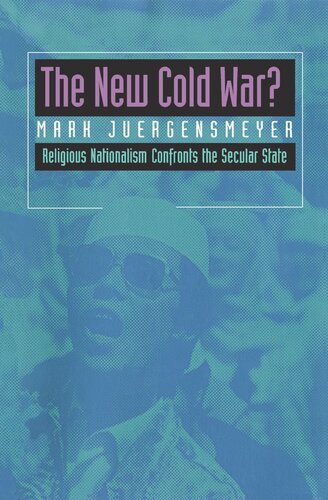

Most ebook files are in PDF format, so you can easily read them using various software such as Foxit Reader or directly on the Google Chrome browser.
Some ebook files are released by publishers in other formats such as .awz, .mobi, .epub, .fb2, etc. You may need to install specific software to read these formats on mobile/PC, such as Calibre.
Please read the tutorial at this link: https://ebookbell.com/faq
We offer FREE conversion to the popular formats you request; however, this may take some time. Therefore, right after payment, please email us, and we will try to provide the service as quickly as possible.
For some exceptional file formats or broken links (if any), please refrain from opening any disputes. Instead, email us first, and we will try to assist within a maximum of 6 hours.
EbookBell Team

5.0
90 reviewsWill the religious confrontations with secular authorities around the world lead to a new Cold War? Mark Juergensmeyer paints a provocative picture of the new religious revolutionaries altering the political landscape in the Middle East, South Asia, Central Asia, and Eastern Europe. Impassioned Muslim leaders in Egypt, Palestine, and Algeria, political rabbis in Israel, militant Sikhs in India, and triumphant Catholic clergy in Eastern Europe are all players in Juergensmeyer's study of the explosive growth of religious movements that decisively reject Western ideas of secular nationalism.
Juergensmeyer revises our notions of religious revolutions. Instead of viewing religious nationalists as wild-eyed, anti-American fanatics, he reveals them as modern activists pursuing a legitimate form of politics. He explores the positive role religion can play in the political life of modern nations, even while acknowledging some religious nationalists' proclivity to violence and disregard of Western notions of human rights. Finally, he situates the growth of religious nationalism in the context of the political malaise of the modern West. Noting that the synthesis of traditional religion and secular nationalism yields a religious version of the modern nation-state, Juergensmeyer claims that such a political entity could conceivably embrace democratic values and human rights.